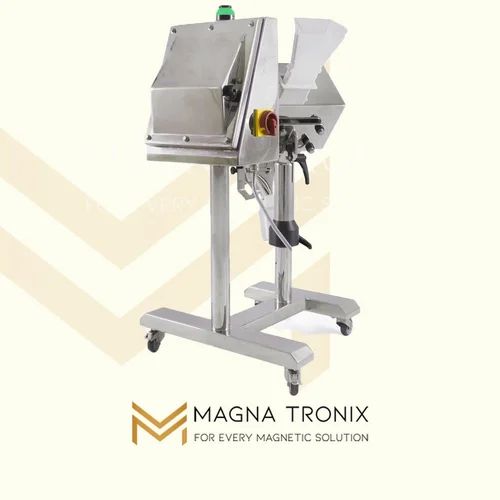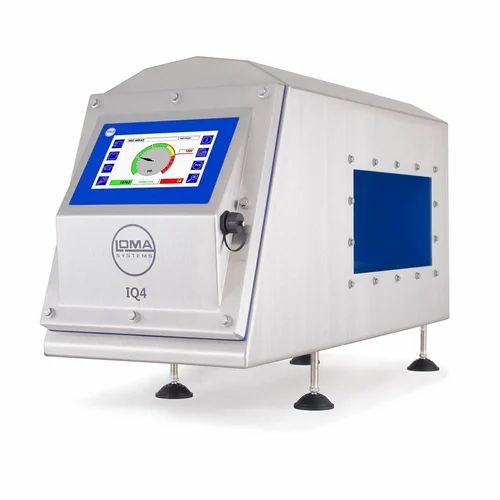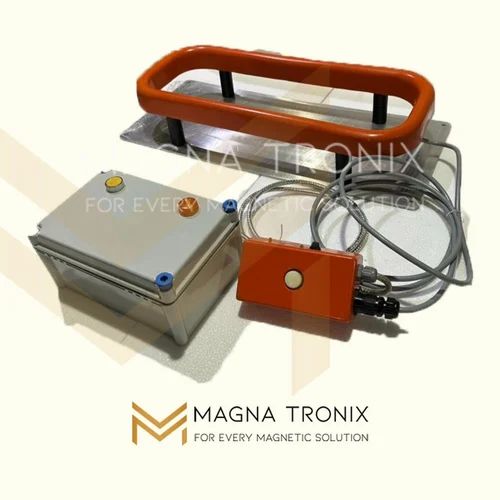Metal Detecting Machine
230000 INR/Piece
Product Details:
- Rejecter Automatic reject system
- Waterproof Yes
- Sensitivity High
- Usage commercial
- Warranty Yes
- Application Industrial food processing, packaging lines
- Product Type Metal Detecting Machine
- Click to View more
X
Metal Detecting Machine Price And Quantity
- 1 Piece
- 230000 INR/Piece
Metal Detecting Machine Product Specifications
- Industrial food processing, packaging lines
- Metal Detecting Machine
- Electric
- High
- Yes
- Automatic reject system
- commercial
- Yes
Metal Detecting Machine Trade Information
- 10-15 Days
- All India
Product Description
Introducing the Elite Metal Detecting Machine, crafted with a corrosion-resistant stainless steel frame and equipped with a world-class digital control panel. Featuring a select PU conveyor belt and outstanding electromagnetic induction detection method, this special device guarantees heroic sensitivity for industrial food processing and packaging lines. The model includes CE-certified compliance, adjustable conveyor height, waterproof design, and automatic reject system. With audio-visual alarms and a powerful 220V electric supply, this floor-mountable unit is built for durability, reliability, and exceptional performance to meet commercial standards in India.
Optimal Application Coverage for Industrial Use
The Metal Detecting Machine presents an outstanding solution with a waterproof surface, elite durability, and corrosion resistance. Designed for application areas such as food processing units and packaging lines, it is used for rapid detection of metal contaminants. Its special adjustable conveyor height and high sensitivity make it suitable for a range of industrial surfaces, ensuring superior quality control and product safety.
Efficient Supply Chain and Sample Accessibility
Sample availability is offered for heroically reliable testing prior to purchase order confirmation. Supported by world-class supply ability, goods transport and packing & dispatch are executed efficiently to ensure timely delivery. Once the purchase order is approved, products are dispatched within a select delivery timeframe, allowing clients to benefit from outstanding order fulfillment and responsive customer support.
Optimal Application Coverage for Industrial Use
The Metal Detecting Machine presents an outstanding solution with a waterproof surface, elite durability, and corrosion resistance. Designed for application areas such as food processing units and packaging lines, it is used for rapid detection of metal contaminants. Its special adjustable conveyor height and high sensitivity make it suitable for a range of industrial surfaces, ensuring superior quality control and product safety.
Efficient Supply Chain and Sample Accessibility
Sample availability is offered for heroically reliable testing prior to purchase order confirmation. Supported by world-class supply ability, goods transport and packing & dispatch are executed efficiently to ensure timely delivery. Once the purchase order is approved, products are dispatched within a select delivery timeframe, allowing clients to benefit from outstanding order fulfillment and responsive customer support.
FAQs of Metal Detecting Machine:
Q: How does the audio and visual alarm system work on the Metal Detecting Machine?
A: The machine issues an audio and visual indicator alert when metal contaminants are detected, ensuring immediate awareness and fast response to potential issues during industrial processing.Q: What process does the automatic reject system follow?
A: The automatic reject system heroically identifies contaminated products and promptly removes them from the conveyor belt without manual intervention, maintaining exceptional product integrity and operational efficiency.Q: When can customers expect delivery after placing a purchase order?
A: Goods are packed and dispatched efficiently, with delivery timing decided during the purchase order process. Typically, dispatch occurs within the agreed time frame outlined in the order confirmation.Q: Where is this Metal Detecting Machine most beneficially used in industrial applications?
A: This machine shows outstanding performance in food processing plants, packaging lines, and other elite commercial environments requiring high sensitivity for metal detection and compliance with strict safety standards.Q: What are the benefits of choosing a CE-certified, waterproof metal detecting device?
A: Selecting a CE-certified and waterproof unit guarantees reliable operation in diverse environments, enhanced hygiene, easier maintenance, and elevated safety for both products and personnel.Tell us about your requirement

Price:
Quantity
Select Unit
- 50
- 100
- 200
- 250
- 500
- 1000+
Additional detail
Mobile number
Email








